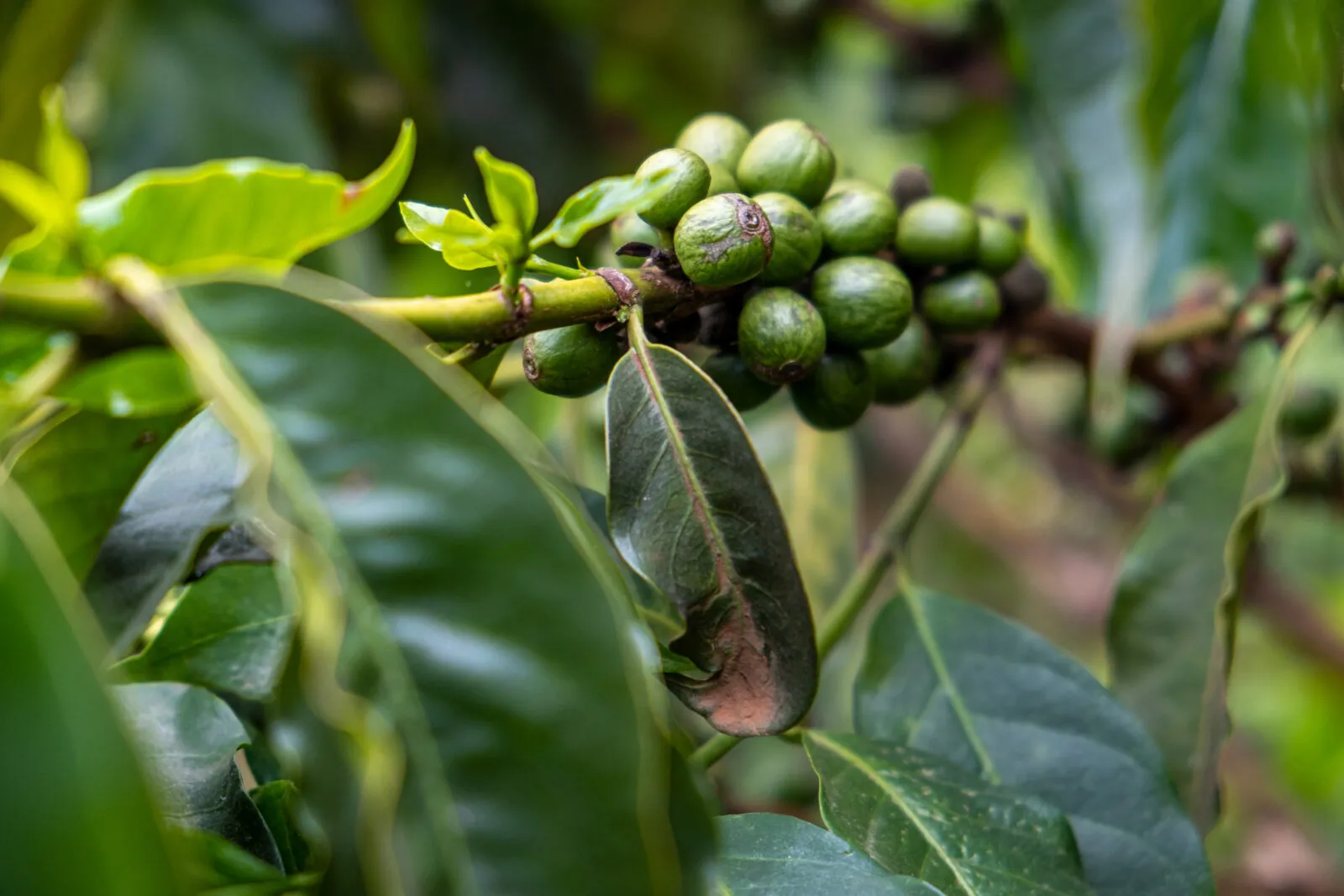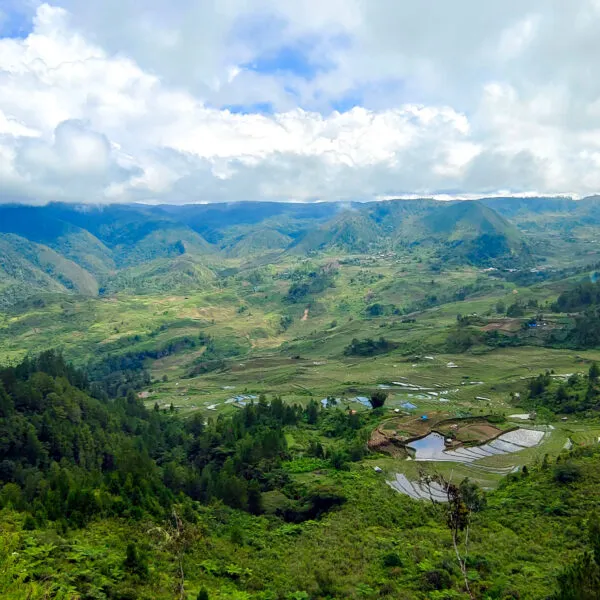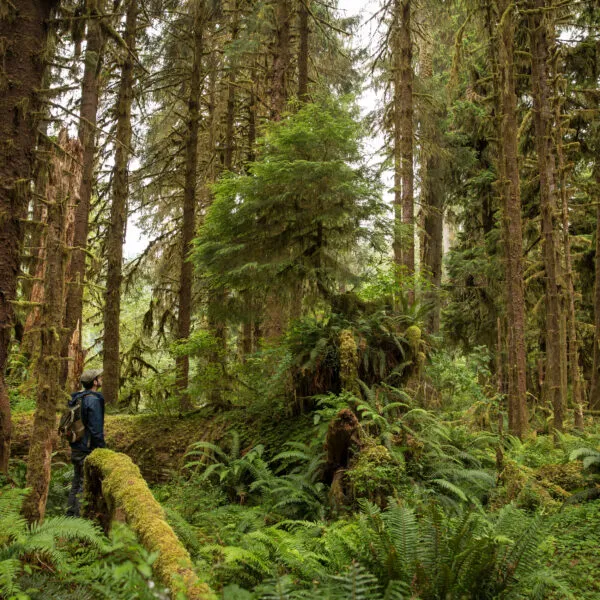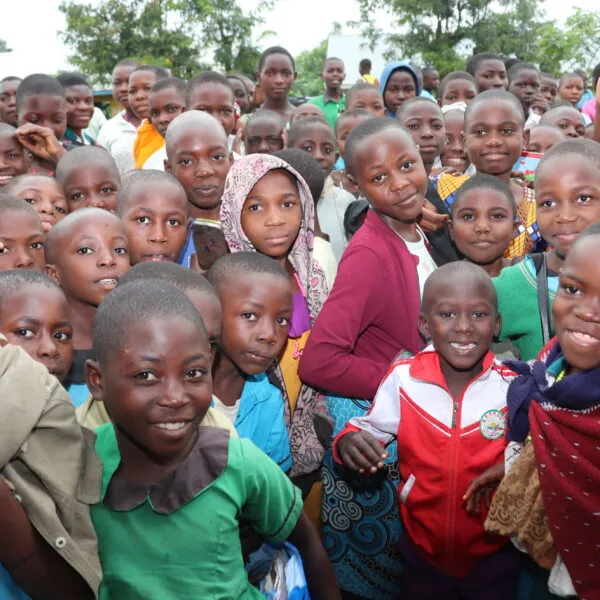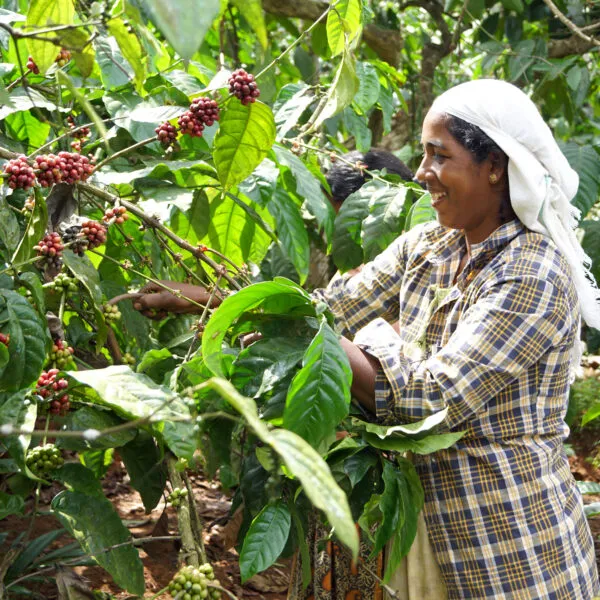In the coffee-producing highlands of Gusii, western Kenya, the Rainforest Alliance is working with smallholder farmers and local supply-chain actors to create healthy and productive farms, restore fragile ecosystems, and boost farmer incomes. Our approach: regenerative agriculture.
Kenya is known worldwide for its smooth, full-bodied, Arabica coffee, which is grown mostly by smallholder farmers. However, Kenyan coffee production has declined by around 50 percent over the past 25 years, stagnating at around 40,000 metric tons per year. Climate change, ageing coffee trees, soil degradation, and unsustainable water use contribute to this stagnation, and many farming cooperatives are unable to support their members with essential services like soil analysis, training, and financial credit. Add to this the heavy use of harmful agrochemicals and intense land conversion, the sector is extremely vulnerable to environmental challenges. All of these factors have negatively impacted supply and demand for Kenyan coffee by increasing the risks for coffee buyers and brands looking to source more sustainably grown beans. This in turn has a direct negative impact on the household incomes of Kenya’s smallholder coffee farmers.
Through this project, the Rainforest Alliance and its partners—local coffee farmers and JDE Peet’s— plan to address these urgent concerns across the Gusii region by scaling market-led landscape and community initiatives rooted in regenerative agriculture best practices.
Official project name
Gusii Regenerative Agriculture Landscape (GuRAL) Coffee Project
Location
Kenya – Gusii Region: Kisii and Nyamira Counties
Project period
2023-2025
Key commodities
Coffee
Partner communities
10,000 smallholder coffee farmers, including Community Forest Associations (CFAs), Water Resources Users Associations (WRUAs), Gusii Coffee Farmers Cooperative Union (GCFCU), and 16 affiliated coffee cooperative society members.
Project objectives
- Promoting regenerative and climate-smart growing practices
Regenerative agriculture aims to create farms that add to nature’s richness, rather than take away. In 2022, we developed the Regenerative Coffee Scorecard to support this much-needed transition. A voluntary tool that builds on the climate-smart principles of the Rainforest Alliance Certification Program, the Scorecard offers both certified and non-certified supply chain actors a tool to assist their regenerative transition. In Gusii, we will promote the Scorecard to assess current farm performance, highlight where targeted support is needed, and track progress towards regenerative, climate-smart goals for key indicators, including soil, water, biodiversity, and livelihoods.
- Creating opportunities for livelihood diversification
Improving farmers’ livelihoods is a vital part of the Rainforest Alliance approach to regenerative agriculture. Our Scorecard measures graduated improvements in a farm’s business management: from “bronze level” (monitoring costs of production and calculating revenue from sale of coffee) to “silver level” (creating their own farm management and/or business plans) to “gold level” (diversifying income streams and adjusting business practices as necessary).
- Private and public sector engagement
Together with our partners, we will engage directly with public and private stakeholders across the coffee sector—from local and national government officials and coffee research organizations, to community groups and civil society organizations, such as community forest associations and water resource users’ associations.
- Restoration of degraded ecosystems
This project will develop landscape management plans to protect and restore degraded ecosystems across the Gusii region. This will include measures to improve carbon sequestration, reduce land degradation and deforestation, and conserve water bodies.
To achieve this, we will set up community-led Landscape Management Boards (LMBs). These LMBs are composed of representatives from local communities, farms, the private sector, and both formal and traditional authorities. These stakeholders work together to develop and implement action plans, and incentivize the protection and restoration of local ecosystems, making them valuable allies in this project.
Desired impacts
- Resilience Pathway
- Establish four agroforestry nurseries by the end of the project to foster thriving rural livelihoods, biodiversity, and ecosystem services at scale
- Conduct 16 training workshops on the themes of Pests & Diseases management, rehabilitation and renovation of coffee bushes, cost of production, income diversification practices, pruning, composting technology, soil erosion & soil testing techniques and shade management targeting Neumann Kaffee Gruppe & Gusii Union extension staff, cooperative managers, and lead farmers by the end of the project period.
- Train 4 youth groups/women groups on innovative business models within Gusii Region
- Restoration Pathway Objectives
- Develop a landscape management plan (LMP) by the end of the project period
- Restore 100 hectares of restored land by the end of the project period
- Capacity-Buiding Pathway
- Build one Community Forest Association (CFA) by the end of the project period
- Build 4 water resource users associations (WRUSs)
Funders
Jacobs Douwe Egberts (JDE Peets), and the Rainforest Alliance
Implementing partners
Tropical Farm Management Kenya Ltd (TFMKe), Gusii Coffee Farmers’ Cooperative Union (GCFCU), Kisii County Government (KCG) and Nyamira County Government (NCG).
Rainforest Alliance contact
Peter Rira Okongo, GuRAL Project Manager pokongo@ra.org.
